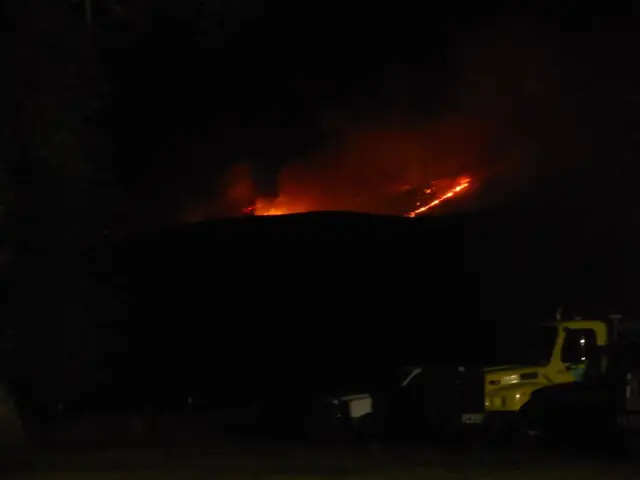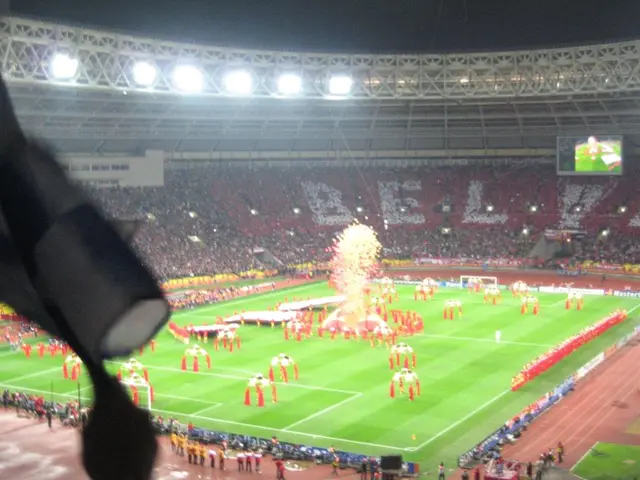U.S. Proposes Ukraine Strategy Aligned Towards Russia, Detailed by Vance
U.S. Peace Proposal for Ukraine: A Doubtful Détente
In a surprising turn of events, Vice President JD Vance has put forward a U.S. peace plan for Ukraine, aligning with long-held Russian objectives - a seemingly harsh bargain for the war-torn nation. This proposal includes territorial freeze, acceptance of Crimea's annexation by Russia, and a NATO ban for Ukraine.
Never before has a U.S. official publicly proposed terms so favorable to Russia in such stark terms. Such a peace, leaving Russian forces ensconced in eastern Ukraine, would taste like sweet victory in Moscow. For almost a year, President Vladimir Putin has expressed readiness to accept a ceasefire with Ukraine withdrawing troops from the four occupied regions and abandoning NATO aspirations.
Vance's comments seem strategically aimed at about-turning President Volodymyr Zelenskyy of Ukraine, who has consistently refused to acknowledge Russian occupation, including the seizure of Crimea in 2014 and invasion-ensued territories.
Another harsh blow for Zelenskyy came in the form of President Donald Trump's scathing statement on his social media platform, alleging that the Ukrainian president could choose between peace or a prolonged conflict.
In a defiant response, Zelenskyy declared that he would never recognize Russia's occupation of Crimea as legal, stressing the constitutional breach such action would entail. Additionally, he expressed Ukraine's unwillingness to accept any NATO prohibition.
Minister of Economy Yulia Svyrydenko echoed Zelenskyy, emphasizing Ukraine's readiness to negotiate but refusal to surrender territories to Russia. She cautioned that any agreement ceding territories to Russia for strengthening its position would usher in greater violence.
Trump accused Zelenskyy of making inflammatory statements that would prolong the conflict. He questioned why Ukraine didn't fight for Crimea eleven years ago when it was handed over to Russia without a fight. Trump warned that Zelenskyy's statements would prolong the "killing field," a term he used, and which no one welcomes.
Vance's threat to walk away from peace talks mirrors comments by Secretary of State Marco Rubio and Trump, who had earlier threatened to declare both sides foolish and walk away if they don't agree to a deal quickly.
On Wednesday, Vance expressed that the U.S. plan entails freezing the territorial lines close to their current positions, essentially forcing Ukraine to cede substantial bits of land to Russia. This move would square with the principles of self-determination and borders the U.S. and European nations have championed for Ukraine since Russia's invasion.
Russia currently occupies 18.7% of Ukraine, according to an online research group with ties to the Ukrainian army. The aggressive push by Trump's administration marks a blow to European leaders who have been working tirelessly to bolster Ukraine's position and broker peace talks with the U.S. The ensuing absence of Rubio and Trump's top negotiator with Russia has renewed fears of Ukraine being sidelined in negotiations between the U.S. and Russia.
- The U.S. peace proposal for Ukraine, as proposed by Vice President JD Vance, has stirred worry in the realm of general news, as its terms might foster conflict and redefine war-and-conflicts in the region.
- The business sector is also concerned, as potential policy-and-legislation changes could impact economic relations and cooperation between Ukraine and Russia, thereby affecting trade and investment opportunities.
- The political implications are vast, with the proposal potentially shifting the balance of power in Ukraine, Europe, and beyond, impacting ongoing politics and the future of the entire region.








